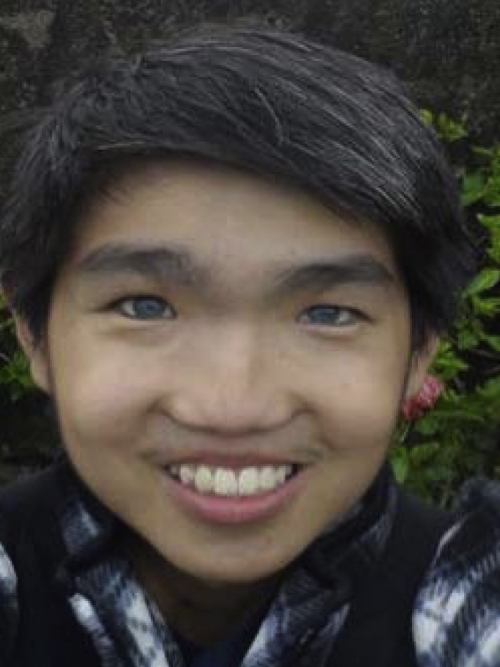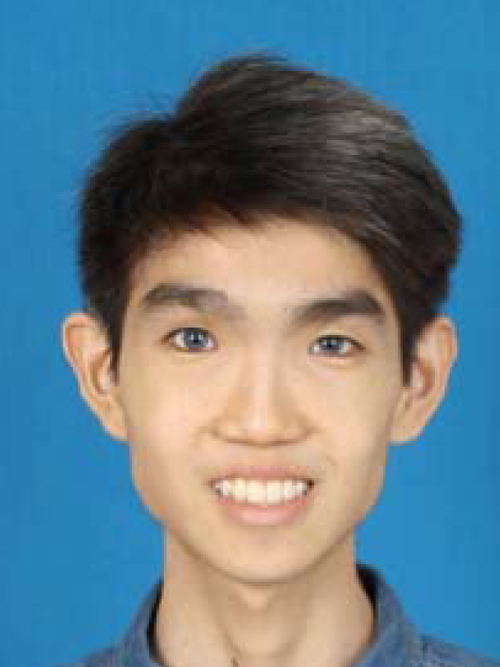
Fig. 1

Fig. 2
Published online by Cambridge University Press: 23 March 2020
Waardenburg syndrome (WS) is a rare genetic disorder characterised by varying degrees of sensorineural deafness, dystopia canthorum, musculokeletal defects, pigmentation anomalies such as bright blue iris, greying hair and in some cases intestinal pathology.
A 21-year-old Chinese gentleman, diagnosed with WS type 1 (Figs. 1 and 2) at the age of two, presented at the emergency unit with manic symptoms for the past one month such as irritability, grandiosity, flight of ideas and reduced need for sleep. With regards to social integration, he had features suggestive of autism spectrum disorder (ASD). He often played by himself and was fixated on particular toys. He was eventually admitted to the psychiatric ward for acute management of mania. He was stabilised on olanzapine 10 mg BD and sodium valproate 600 mg BD. His sodium valproate was cross-titrated with lithium in the ward and his manic features gradually subsided. He was discharged well after 2 weeks of admission with lithium 300 mg BD and olanzapine 10 mg BD. WS type 1 has been localised to the locus 2q35 and researchers have identified that a tetranucleotide repeat marker on 2q35 is strongly associated with recurrent mood symptoms.
In conclusion, it is important to note that individuals with WS may be at higher risk to develop ASD and mood disorders.
The authors have not supplied their declaration of competing interest.

Fig. 1

Fig. 2

Fig. 1

Fig. 2
Comments
No Comments have been published for this article.